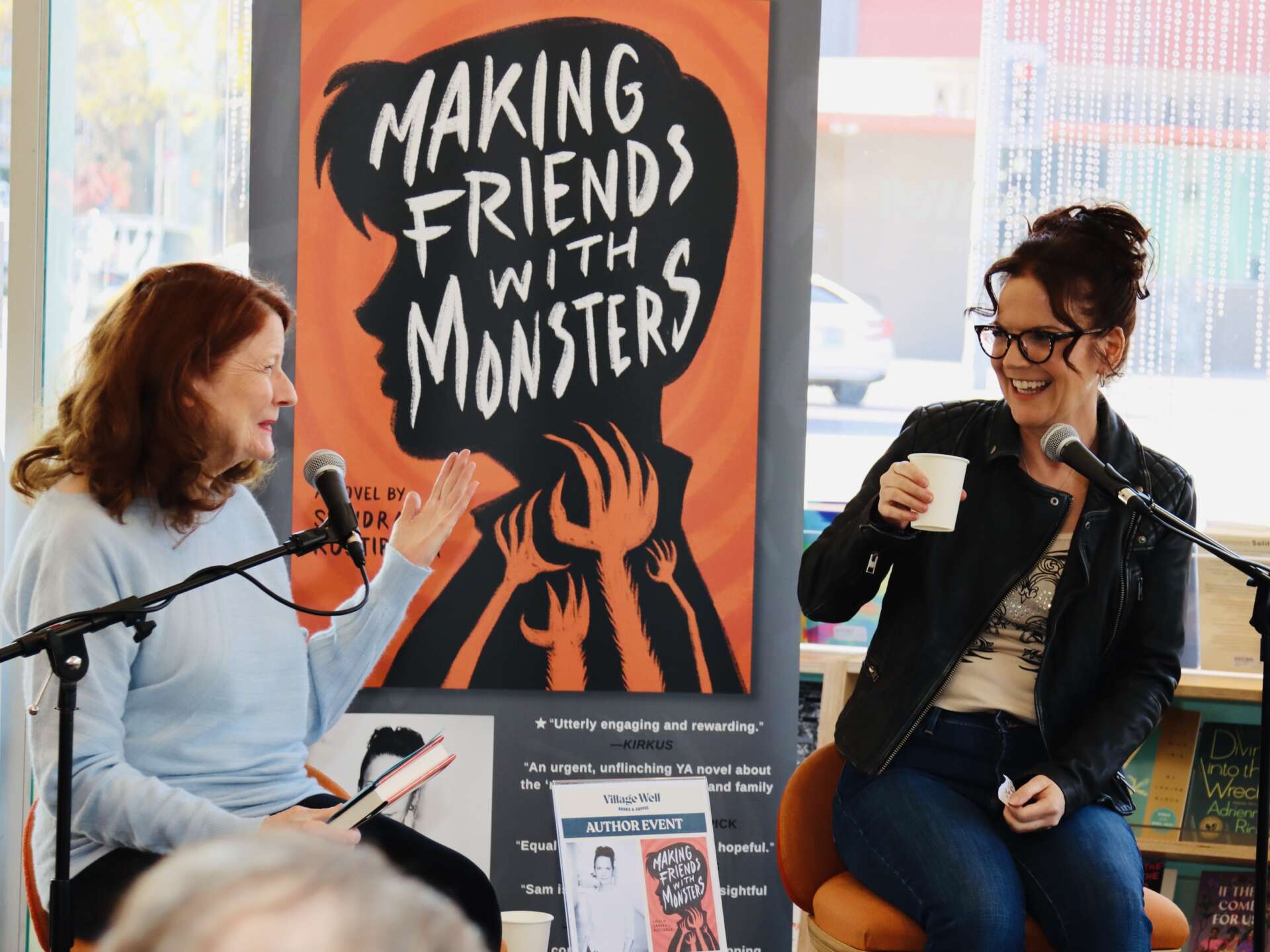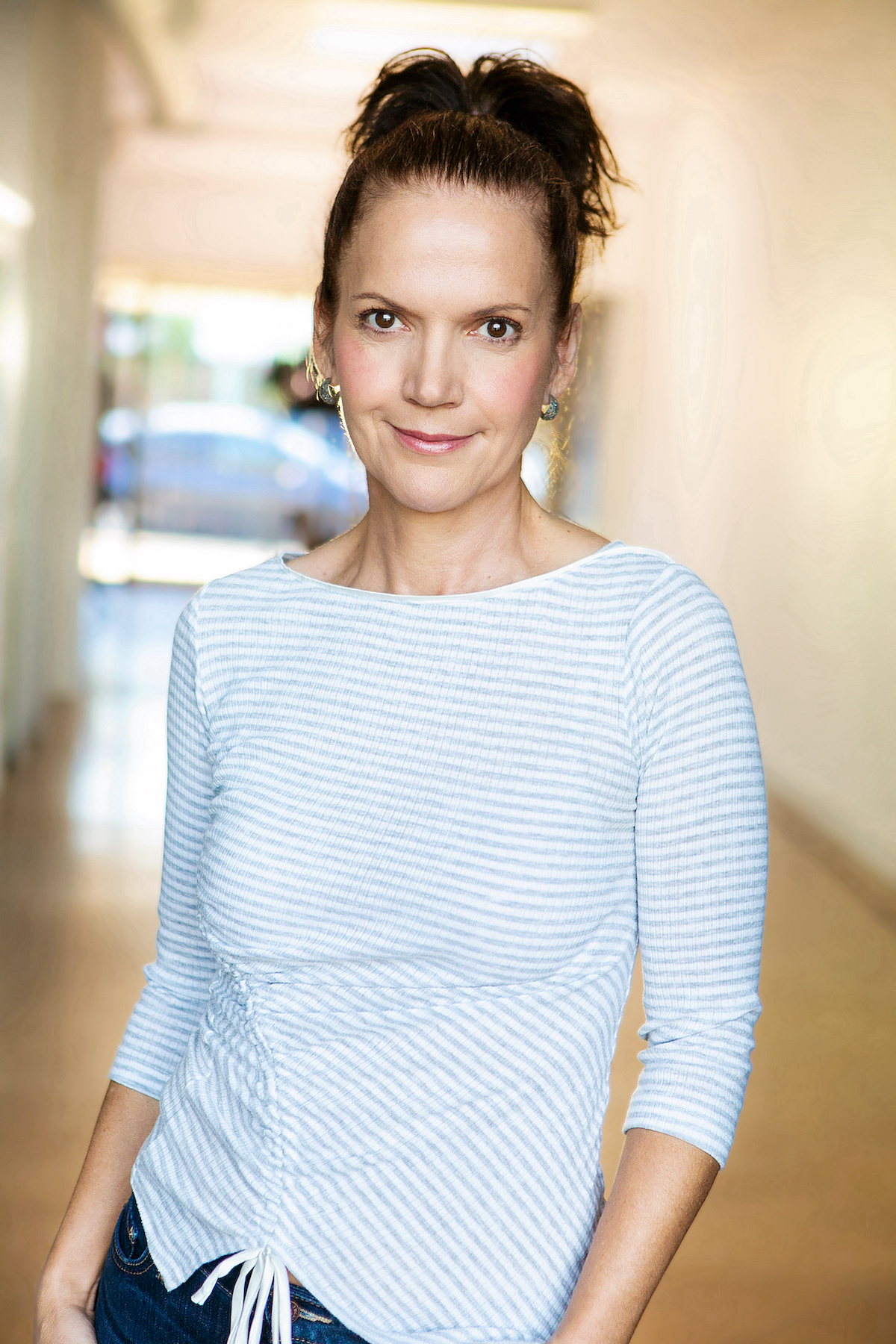Alright – so today we’ve got the honor of introducing you to Sanda Rostirolla. We think you’ll enjoy our conversation, we’ve shared it below.
Do you wish you had started your creative career sooner or later?
At school, I was very academic, studying subjects like physics, chemistry, and math. English, however, was a different story. I always enjoyed creative writing and received high marks; however, I struggled when assignments focused on the technical side of writing—grammar and reading comprehension.
Because of this, I had assumed writing was not a possible path, and I went on to receive a Bachelor of Applied Sciences (Physiotherapy) from the University of Sydney. I spent a little over fifteen years in the health industry, and another decade trying to get past my “imposter syndrome.” Meaning, because I doubted my skills and talents, I didn’t feel I had the right to pursue a creative career.
I stumbled into writing my first novel (a young adult fantasy—CECILIA: THE LAST CROILAR TIER) when my husband, who is a composer, wanted to write a ballet. I offered to work with him as the librettist. Since ballet stories typically range from only 4-15 pages, I thought this would be a good opportunity to get my feet wet.
Every time I handed over a paragraph or two, my husband would tell me, “That’s great. Keep expanding it.” Six weeks later, my story had ballooned to 90 pages. At that time, my husband’s schedule also ballooned, and he no longer had time to work on our project. When I asked him what I was supposed to do with the bundle of papers in my hands, he said, “Write the novel.”
After resisting for a couple of weeks, I decided to push through my fears and insecurities. My debut novel went on to win several awards. I learned that a writer’s first and foremost strength is discipline. Completing a novel is hard. It takes dedication and the will to stick to a daily regimen. The second most important skill is creativity. A story can’t exist without the ability to first imagine it. Last on the list is the technical aspect. One does not need to be a grammar superstar to begin their writing career. If this were the case, editors and proofreaders would be out of a job.
While studying physiotherapy, I learned that we adopt new skills faster when they are task-specific. In high school, I didn’t absorb things like grammar and sentence structure because I wasn’t invested in the topic (which usually revolved around making arguments for or against an arbitrary story point in the book we were studying). Everything finally clicked when I started working with my editor on my own story.
I don’t like to say that I “regret” not starting my writing career sooner, as I don’t believe in living with regret. But if I could talk to my younger self, I would most certainly tell myself not to let my fears get in my way. I would convince my younger self to follow my dreams when I first had them.
The biggest struggle I have with starting my career in today’s world is the role social media plays in an artist’s success. Instead of the artist’s work being the commodity, the artist is the product. I am an introvert and have to push myself out of my comfort zone to be active on social media. While I’m getting better, I am also late to the game. I feel as though younger authors, who grew up with social media, have a leg up.



About You, Your Art/Creative Works, Inspirations/Focus/Mission/etc.
I write mostly young adult fiction. I presently have four books published. The first three are a fantasy trilogy—THE CECILIA SERIES—about a spirited young woman who resists her role as the savior of her people until an emotionally bankrupt assassin draws out her inner warrior. At its core, this series is a slow burn enemies-to-lovers romance wrapped up in an epic good-versus-evil fantasy.
My fourth novel—MAKING FRIENDS WITH MONSTERS—is a YA/coming-of-age story. Set in rural Australia during a longstanding drought, a twelve-year-old boy watches as his family begins to crumble under the stress. Blaming the growing dysfunction on monsters, he sets out on a fact-finding mission. If he can learn everything he can about these beasts, maybe he can start helping his family. But when a tragic accident brings out Sam’s own monster, he realizes just how addictive these beasts can be. He also knows that if he can’t find a way to live with his monster, then ultimately, it will destroy him.
In the writing world, we are usually in a constant search for a story. MAKING FRIENDS WITH MONSTERS is a case of a story finding me. A few years ago, I was back home in Sydney, Australia, doing a book signing for Book 1 of THE CECILIA SERIES when a school friend told me her heartbreaking story. A year or so prior, her ex died by suicide, and she was left with three young daughters, ages 11-15.
My friend said to me, “I can handle all of it except when my daughter says to me, ‘Mummy, why did Daddy do it?’ That’s when I break down because I have no idea what to say.”
My heart caved because my dad died by suicide when I was thirteen. Since then, two of my brothers have also passed the same way. During the fifteen-hour plane ride back to Los Angeles, all I could think was, “If anyone can help speak to this, I could.” I almost felt as though it was my duty to help.
Although I have been a suicide loss survivor for many years, only through writing my book have I finally felt comfortable openly promoting suicide prevention. I recently had the opportunity to talk at a middle school, and I realized how much I love opening the door for others, especially kids, to learn from my experience.

Is there a particular goal or mission driving your creative journey?
As a suicide loss survivor, my focus with my current novel—MAKING FRIENDS WITH MONSTERS—is to advocate for suicide awareness with a goal to help end the stigma. My book has opened the Dorr to some wonderful opportunities to help raise the awareness, including being invited by the Association of Children’s Community and Residual Services to present my book at their annual conference last month. I’ve also been invited on close to a dozen podcast and radio shows, allowing the opportunity to raise awareness.
I had initially written my book with the goal to offer children and parents was a language where they feel comfortable talking about feelings that often get buried because no one knows how to even begin the conversation. After receiving feedback from readers, it seems anyone who wants to learn a little bit more about themselves—what drives their emotions (or that of others)—can gain insight from my novel.

For you, what’s the most rewarding aspect of being an artist or creative?
The most rewarding aspect of being a writer is connecting with fans. An example is when a local middle school in Los Angeles invited me to talk to their leadership class about the themes in my YA/Coming of Age novel—MAKING FRIENDS WITH MONSTERS. One of the students in the class has recently suffered the loss of his father to suicide. Watching the student gradually open up and ask questions during my short visit was truly hear-warming.
Knowing that I had a positive impact on someone’s life, makes the long and often rocky road as a writer worth it.

Contact information:
- Instagram: https://www.instagram.com/slrostirolla/
- LinkedIn: https://www.linkedin.com/in/sandrarostirolla/
- Twitter: https://twitter.com/SLRostirolla
- Facebook: https://www.facebook.com/SLRostirolla
- TikTok: https://www.tiktok.com/@slrostirolla

PHOTO CREDITS:
For “Sandra_Headshot” credit is @VaniePoyeyPhotgraphy.
All other no credit needed.
Suggest a Story: CanvasRebel is built on recommendations from the community; it’s how we uncover hidden gems, so if you or someone you know deserves recognition please let us know here.


